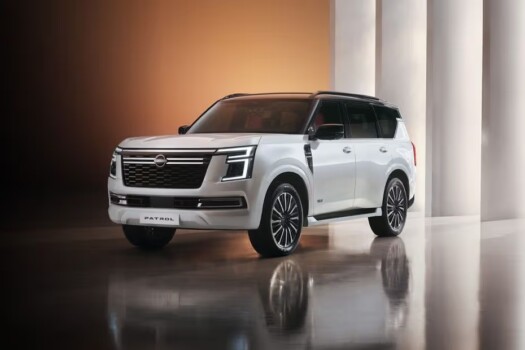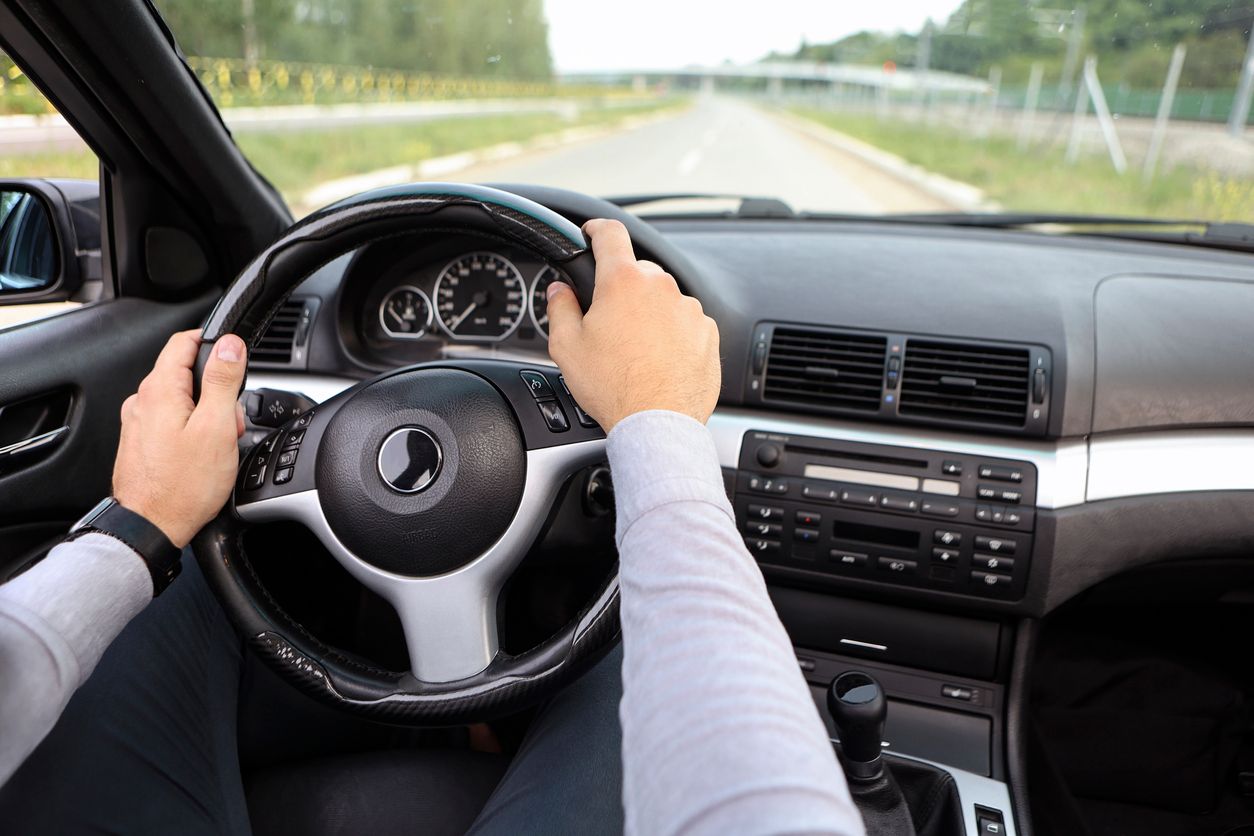Your dream SUV, the Nissan Patrol, might become a maintenance nightmare without proper preparation. This iconic vehicle wins hearts with its rugged off-road capabilities and luxurious features, making it a UAE favorite. However, owners don’t deal very well with several challenges hidden beneath that impressive exterior.
The Nissan Patrol’s powerful 5.6L V8 engine and complete safety shield can’t hide some persistent issues. Transmission problems cause rough shifting in older models of the Y62. The ZD30 models suffer from suspension wear that leads to uneven tire wear and uncomfortable rides. The UAE’s harsh climate makes things worse, especially when you have extreme temperatures that trigger engine overheating and transmission slippage. On top of that, it faces petrol-related challenges from poor fuel efficiency to complete fuel pump failures. The vehicle’s electrical system often develops gremlins that affect everything from infotainment systems to critical sensors.
Our extensive experience with these vehicles and real owner reports have helped us identify 11 persistent issues Patrol owners face in 2025. This piece will help you recognize, prevent, and fix these problems before they empty your wallet, whether you already drive this otherwise impressive SUV or plan to buy one.
Transmission Issues
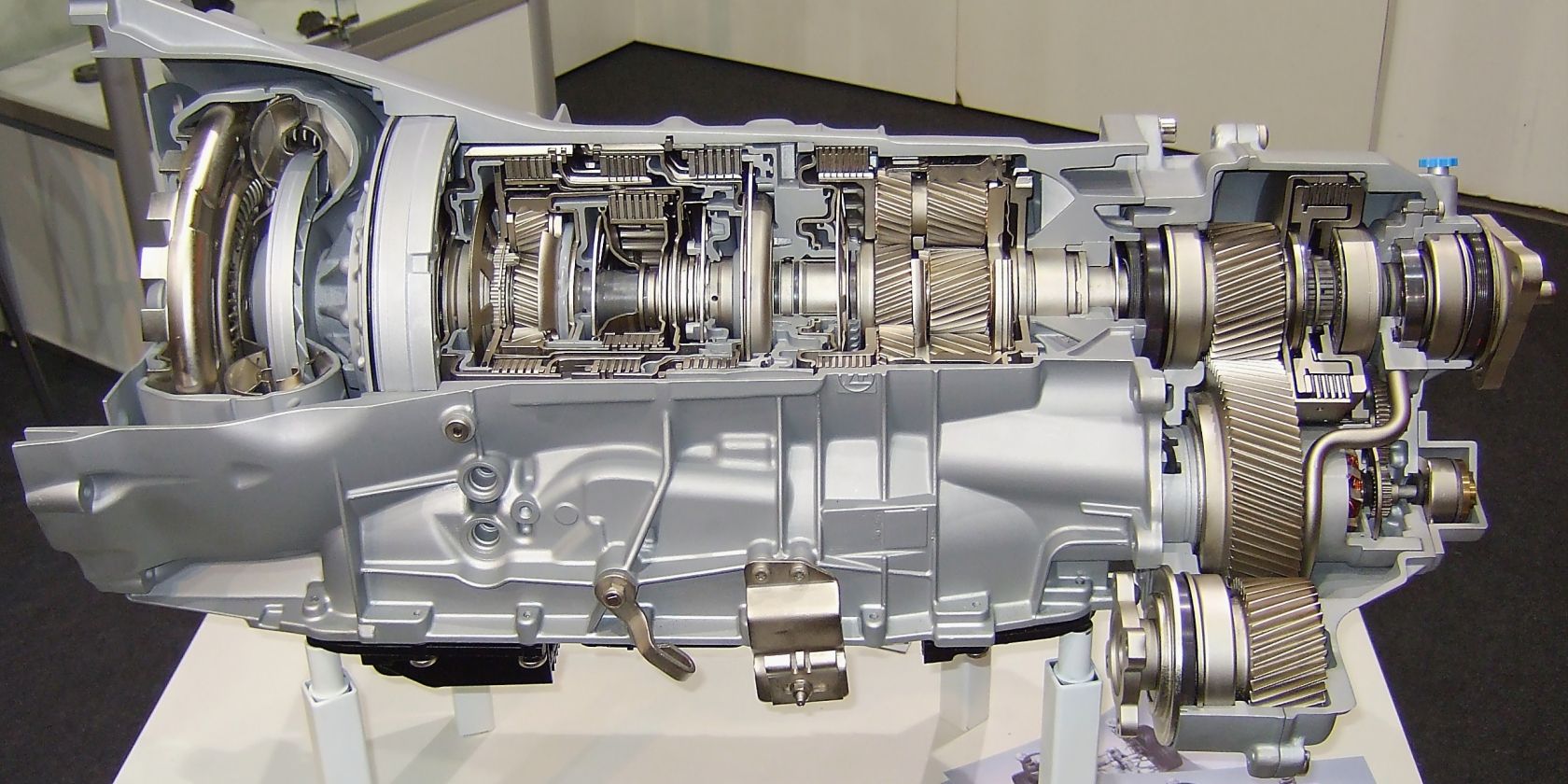
]Transmission failures stand out as one of the most serious problems Nissan Patrol owners face. These issues can leave you stuck on Dubai’s highways or in the middle of the desert. Your vehicle’s transmission plays a vital role by moving power from the engine to the wheels. When it fails, repairs don’t come cheap.
Transmission Issues in Nissan Patrol
Nissan Patrol’s transmission system often develops problems, especially in high-mileage vehicles. Owners often report their vehicles struggle with rough shifting and delayed engagement. Some cases lead to complete transmission failure. Both newer Y62 models and older variants face these issues, though they appear differently.
Y62 Patrol owners often complain that their transmission won’t automatically shift into sixth or seventh gear. Older models face more basic issues. Their gears might slip or fail completely. Some vehicles only work in second and third gears.
A dangerous situation arises when coolant mixes with transmission fluid through damaged radiator or transmission cooler. Mechanics call this mixture a “milkshake” – it looks brownish and frothy. This mixture can severely damage internal parts. A simple fluid flush rarely fixes this issue. Most times, you’ll need a complete transmission overhaul.
Common symptoms of transmission failure
You can save thousands in repair costs by spotting early warning signs. Watch out for:
- Delayed or rough shifting: Your transmission hesitates or jerks during gear changes, particularly while speeding up
- Thumping during shifts: You hear a bang or clunk when gears engage
- Unusual noises: Your car makes grinding, whining, or humming sounds underneath
- Warning lights: Your dashboard lights up with check engine or transmission temperature warnings
- Burning odor: You smell something burnt from overheated transmission fluid
- Fluid leaks: You see red or brown puddles under your parked car
- Loss of power: Your car won’t accelerate properly or move in drive
The most obvious sign lies in your transmission fluid’s condition. Good fluid looks reddish and clear. If it’s dark, smells burnt, or looks milky, your transmission needs immediate help.
How to prevent transmission problems
Most Nissan Patrol transmission issues can be avoided with good maintenance. Change your transmission fluid regularly based on Nissan’s schedule – about every 30,000-60,000 kilometers if you drive in UAE’s tough conditions.
Adding an external transmission cooler helps, especially if you tow often or drive during Dubai’s hot summers. Extra cooling helps stop fluid from breaking down due to heat.
Your transmission will last longer if you don’t push it too hard. Avoid towing more than recommended or driving aggressively with quick acceleration. Nissan Patrol can handle tough conditions, but constant strain speeds up wear and tear.
Small transmission problems can quickly become major failures. Take your vehicle to a specialized Nissan service center as soon as you notice any issues. Early repairs often cost much less than complete overhauls.
Suspension Wear and Tear
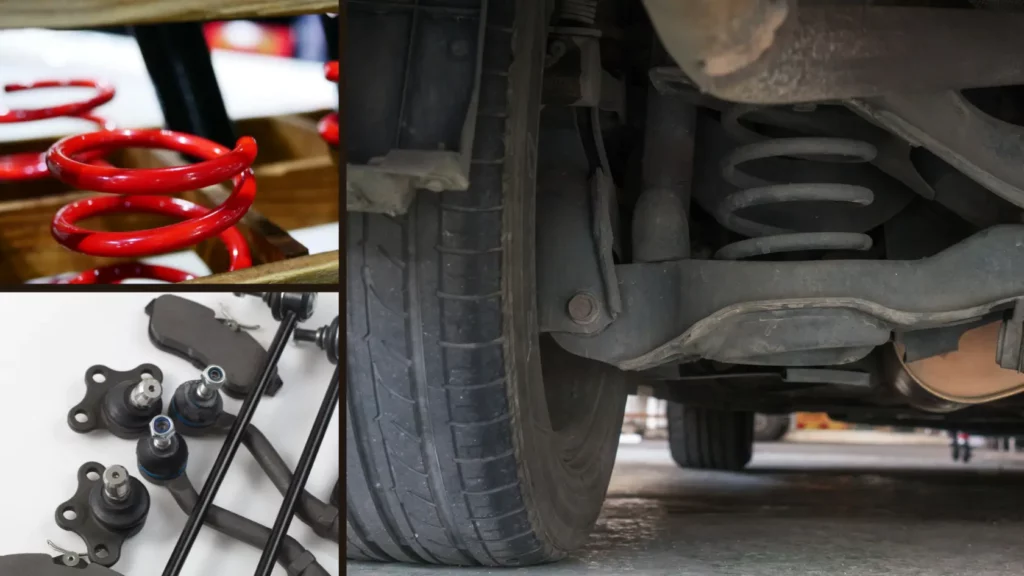
Your Nissan Patrol’s 2.7-ton weight pus massive stress on its suspension system. UAE’s tough driving conditions, from city potholes to desert dunes, make this system vulnerable to damage. The suspension affects your ride comfort and handling safety significantly.
Suspension problems in Nissan Patrol
The Nissan Patrol Y62 models often face problems with their Hydraulic Body Motion Control (HBMC) suspension system that lead to uneven ride height and poor handling. Older Patrol models struggle with worn-out bushings that create too much play in the suspension and cause handling issues.
Ball joints attached to upper and lower control arms wear out as time passes. On top of that, harsh terrain and heavy loads cause shock absorbers to wear faster than expected.
Some Y62 owners have faced dangerous situations where upper control arms snap completely. This causes the wheels to develop severe positive camber. The vehicle becomes almost impossible to drive and needs immediate expert attention.
Signs of worn-out suspension
You can save money by spotting suspension problems early. Look out for these warning signs:
- Excessive bouncing: Your shock absorbers need replacement if the Patrol bounces more than twice after you push down on the hood
- Nose-diving when braking: Your vehicle dips forward too much because of worn shocks or struts
- Uneven tire wear: Shows misalignment or worn suspension parts
- Clunking or rattling noises: Loose or damaged control arms make these sounds over bumps
- Vehicle sitting low on one side: A broken spring can’t support your vehicle’s weight properly
- Steering challenges: Your vehicle becomes hard to control, especially during turns
Recommended maintenance tips
Regular maintenance helps prevent suspension problems in your Nissan Patrol. Ask mechanics to check for fluid leaks around shock absorbers during service visits. Oil or grease spots mean damaged parts need attention.
Y62 Patrol owners should check upper and lower control arms regularly. Early replacement prevents bigger problems down the road. Heavy-duty suspension parts might work better if you drive off-road often or carry heavy loads.
Quality OEM parts ensure the best fit and function during replacements. Regular wheel alignments keep tire wear even and handling optimal, especially after off-road trips.
Your suspension needs professional balancing every 20,000-30,000 km. This simple maintenance step helps maintain control and extends component life. A small investment now saves thousands in future repairs.
Electrical System Failures
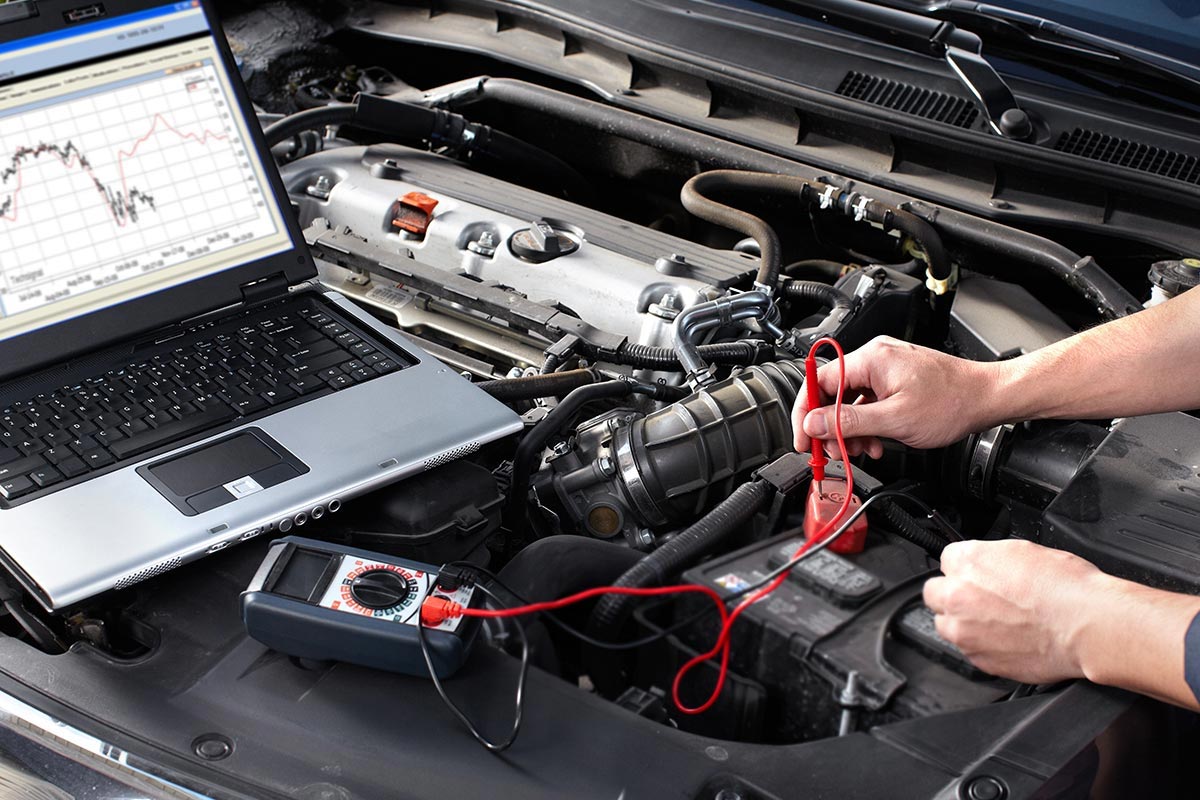
Nissan Patrol owners face numerous electrical problems that create frustrating intermittent issues. These problems are hard to diagnose and fix. Modern computerized vehicles have made these common Nissan Patrol issues more complex and expensive to repair.
Common electrical faults in Nissan Patrol
The electrical system in Nissan Patrols can fail suddenly. Owners experience power losses, dashboard warning lights, or their vehicles shut down completely. Some owners report their vehicles die while idling and all warning lights disappear from the dashboard. Damaged wiring harnesses near the engine control unit (ECU) often cause these problems.
Y62 models come with their own set of electrical challenges. “System locked” messages appear that need dealer help to fix. The older ZD30 models usually show error codes like 0072 P2 linked to TDC pulse signals. These codes trigger emergency mode that limits engine RPM. The vehicle’s performance drops and white smoke comes out of the exhaust.
These electrical problems are hard to fix because they come and go randomly. The vehicle works fine one moment and fails the next. Bad ground connections between the battery post and chassis are often the reason. Faulty earth points cause many mysterious electrical issues.
Infotainment and sensor issues
Modern Patrol’s sophisticated infotainment systems create new problems. Users complain most about unresponsive touchscreens. The screens delay or stop responding when drivers try to use essential functions.
Y62 owners deal with navigation system problems too. Maps jump to wrong locations, lines appear across screens, or the system freezes completely. Fixing these issues needs software updates or sometimes replacing the entire module.
Radar sensor failures affect newer Patrols’ driver assistance systems like adaptive cruise control and collision avoidance. Physical damage, sensor misalignment, bad wiring, outdated software, or dirt buildup cause these failures.
Battery and wiring concerns
Battery problems are another major headache for Nissan Patrol owners. Batteries drain faster than normal, vehicles struggle to start, or the ignition shuts off. Some vehicles’ dashboard gages only work at higher RPMs (1500+) but stop working at lower speeds.
Failed alternators often cause these issues by not charging the battery properly while driving. Bad battery cables can prevent the car from starting. Corroded or frayed wires lead to short circuits and poor electrical connections.
Regular wiring inspections help prevent electrical failures. Check areas where heat or physical contact might cause damage. Keep battery connections free from corrosion and ensure ground points stay clean and tight. Stubborn issues might need professional diagnostics with special equipment to find out why it happens.
Fuel System Malfunctions
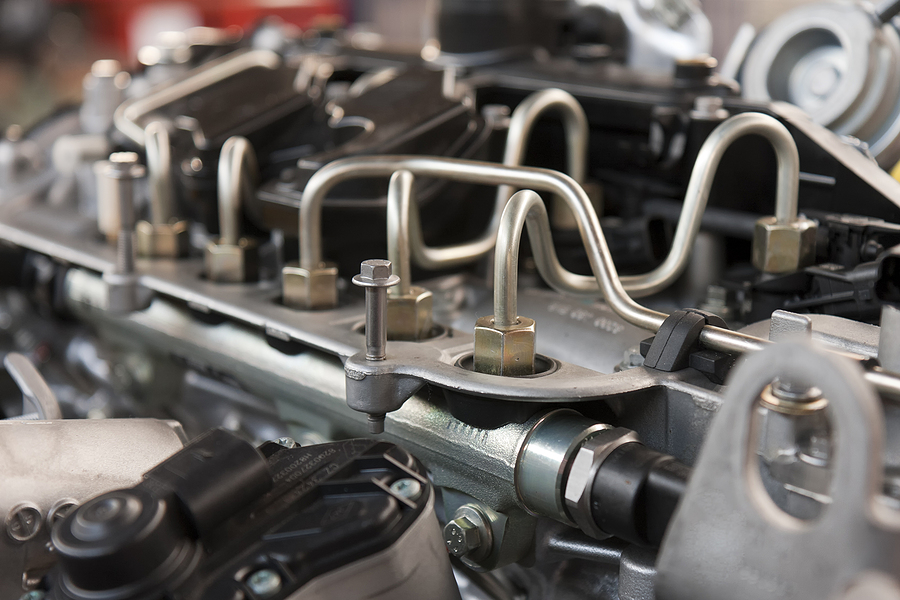
Nissan Patrol’s fuel system problems can get worse faster than you’d expect. Small performance issues might lead to complete engine failure if you don’t deal with them right away. These fuel system failures don’t just hurt performance – they hit your wallet too. The sort of thing UAE Patrol owners don’t deal very well with.
Fuel system issues in Nissan Patrol
Your Nissan Patrol’s fuel system can show several distinct problems. Fuel pump failures are all but one of these common problems, and you’ll pay between 2,000-2,500 AED to fix them. Diesel models, especially those with ZD30 engines, often face fuel injector problems that lead to poor combustion and lost performance.
Newer Y62 models with direct injection systems might let fuel mix with engine oil. This leads to more wear and tear and could damage your engine. When you check your dipstick and see too much fuel in the oil, you need immediate repairs.
The ZD30 Common Rail Diesel (CRD) models often struggle with fuel rail pressure drops. These pressure issues mess up fuel delivery and hurt your car’s performance.
Symptoms of fuel pump or injector failure
You can save money by catching fuel system problems early. Here are the warning signs to watch for:
- Engine sputtering at high speeds: Your Patrol might shake or lose power briefly on highways
- Rising engine temperature followed by stalling: Heat builds up first, then your engine shuts down
- Loss of power during demanding activities: Hills and quick acceleration show fuel delivery problems clearly
- Hard starting or cranking without starting: Your fuel pump can’t build enough pressure
- Black smoke from exhaust: You’ll see this mostly during acceleration, showing poor fuel spray
On top of that, your fuel efficiency drops before other obvious signs appear. Bad components waste more fuel before bigger problems show up.
Maintenance tips for fuel efficiency
Your Nissan Patrol’s fuel system needs regular care. Fill up at trusted stations to keep dirt out of your system. Quality fuel system cleaners help remove gunk from injectors and fuel lines.
The UAE’s driving conditions mean you should change your fuel filter every 30,000 kilometers. This simple job keeps dirt away from expensive parts like injectors.
Diesel Patrol owners should think over adding a pre-filter kit. It gives extra protection against bad fuel that’s common in local supplies. Professional injector cleaning every 30,000-45,000 kilometers keeps your engine running at its best.
Your driving habits ended up affecting your fuel system’s health too. Keep your tank above quarter-full – an empty tank makes your pump work harder and might overheat.
Brake System Problems
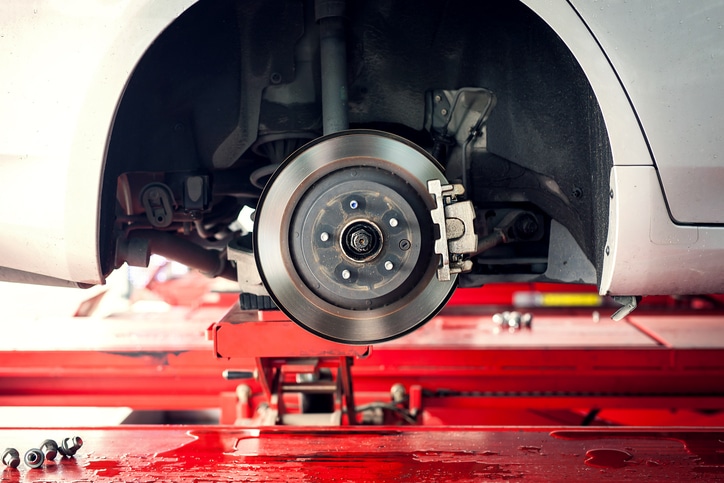
The braking system in your Nissan Patrol stands as a vital safety feature that keeps your family safe on UAE’s busy highways. Yet it remains one of the most reported problem areas in this capable SUV.
Brake issues in Nissan Patrol
Nissan Patrol’s disk-type brakes come with self-adjusting mechanisms, but they can still fail. Worn brake pads and rotors top the list of common problems in Nissan Patrols, which affects both stopping power and safety. Y62 models often face issues with their brake master cylinder that distributes hydraulic pressure to each wheel. This leads to a sinking brake pedal or uneven braking.
The Anti-lock Braking System (ABS) in Y62 models sometimes acts up, making the warning light come on. This could affect your steering control during emergency stops. Many owners also report that their ABS warning light turns on while the differential lock works, which shows reduced anti-lock functionality.
Warning signs of brake wear
You can save lives and avoid pricey repairs by spotting brake problems early. Look out for these signs:
- Audible warnings: Your disk brake pads have built-in wear indicators that make high-pitched scraping sounds when they need replacement
- Pedal feel changes: Soft or spongy brake pedals might mean fluid leaks or air in the lines
- Vibration or pulsation: Your brake pedal shaking points to uneven rotor wear
- Warning lights: Brake warning lights could mean low fluid levels or hydraulic pressure problems
- Burning smell: Bad odors from wheels during braking suggest overheating parts
Yes, it is normal to hear occasional brake squeaks during light to moderate stops, especially in UAE’s dusty conditions. These noises don’t always mean serious trouble.
When to replace brake components
Your brake pads need replacement once they get thinner than 3mm. Change your brake fluid every 15,000km or 12 months if you drive in tough conditions like off-road terrain or mountainous areas.
Nissan’s maintenance schedule recommends brake inspections every 15,000km. You should check them more often – every 7,500km if you drive in dust, tow heavy loads, or deal with stop-and-go UAE traffic.
UAE’s extreme heat makes brake parts wear out faster than in cooler places. High-performance brake components might be worth the investment if you regularly tackle challenging conditions or carry heavy loads.
Cooling System Leaks and Overheating

Overheating stands out as one of the most dangerous Nissan Patrol problems that can destroy your engine if you ignore it. Your engine’s cooling system faces tough challenges every day in UAE’s extreme climate.
Overheating issues in Nissan Patrol
ZD30 engine variants tend to overheat easily, especially when you have poor coolant circulation in the last cylinder. This design flaw often causes cylinder head gasket failures that seriously damage engine integrity. The temperature problems multiply quickly once overheating starts. You might see white smoke from your exhaust – a clear sign that your engine has serious damage.
Y62 owners don’t deal very well with overheating issues, though their problems are nowhere near as severe. The cooling system still struggles during long highway drives or heavy towing. A vehicle that overheats regularly will get pricey repairs if you wait too long.
Common causes of coolant leaks
ZD30 models commonly suffer from the “sandwich plate” leak behind the timing cover. You’ll notice coolant dripping onto lower engine parts when the engine is cold.
Other common leak sources include:
- Radiator corrosion: Internal rust and scale build up over time
- Damaged hoses: Heat and age make them brittle and prone to cracks
- Faulty thermostat: A stuck thermostat blocks proper coolant flow
- Radiator cap deterioration: Bad pressure regulation causes overflow
How to maintain the cooling system
UAE conditions require coolant flushes every 30,000-40,000 kilometers. Your cooling system needs manufacturer-specified antifreeze mixed properly, not tap water which creates harmful scale buildup.
ZD30 owners can improve coolant circulation by adding a Bosch 0392020034 pump in the heater hose section. This helps fix the last cylinder’s cooling issues. Your engine stays healthier when you check coolant leaks, keep the radiator clean, and ensure proper fan operation.
Watch your temperature gage carefully and stop safely if it reaches the red zone. A well-maintained cooling system costs nowhere near as much as fixing a heat-damaged engine.
Air Conditioning Failures
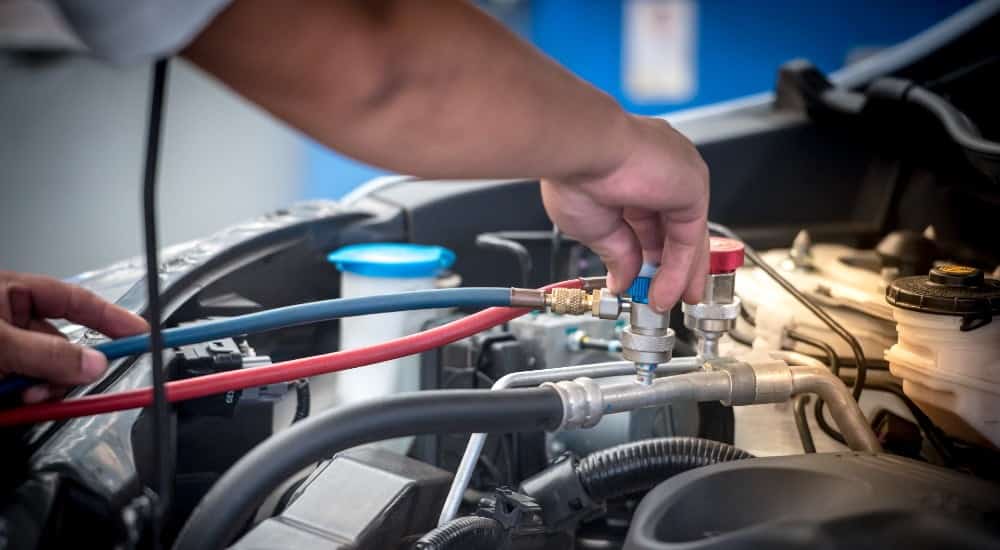
Your Nissan Patrol’s air conditioner becomes a lifeline in UAE’s scorching climate. Many owners deal with AC failures that turn their comfortable drive into an uncomfortable experience.
AC problems in Nissan Patrol
Nissan Patrol owners often face two AC issues: poor cooling and bad smells. Many drivers report warm air blowing from their vents even at maximum cooling settings. This forces them to seek relief by opening their windows. The most common problems in nissan patrol y62 come from refrigerant leaks. These leaks usually happen at the discharge air-con hose where ferrule crimp connections start to wear down.
The AC compressor gives owners another headache when pulley bearings seize up. This needs a complete replacement of the unit. These breakdowns usually happen without warning, leaving drivers without cooling during UAE’s hottest summer days.
Causes of weak airflow or bad odor
Your AC vents might release a smell similar to funky socks because of bacteria growing inside the system. This smell goes away about ten minutes after you turn off the AC but comes right back when you start it again. Clogged drain tubes let water sit in the evaporator, which creates this problem.
Dirt and debris build up in evaporators and block proper air movement. The seals around the evaporator box also wear out and let cool air escape before reaching the cabin vents. Weak airflow even at maximum fan speed points to a contaminated system.
Tips for AC maintenance in UAE heat
Your Patrol’s AC needs regular care to work well in UAE’s extreme heat. Look for water dripping under your vehicle after using the AC – this shows proper condensation drainage. Glen 20 disinfectant sprays through recirculation mode help kill bacteria quickly, according to many Patrol owners.
A professional technician should check and refill the system if bad smells persist. Running your AC on outside air settings helps dry out parts and stops mold growth. Special cabin air filters work great to catch desert dust particles common in UAE.
A professional deep clean of the evaporator core gives the best results for airflow issues. This needs special tools to reach parts behind the dashboard.
Rust and Corrosion

Rust and corrosion attack your Nissan Patrol’s body and frame before you can even see them. These problems can compromise your vehicle’s structural integrity and safety. The coastal humidity and extreme temperature changes in UAE create perfect conditions that speed up this common Nissan Patrol problem.
Rust-prone areas in Nissan Patrol
The Nissan Patrol’s chassis tends to corrode, especially around the undercarriage and wheel wells. Many forum posts show that rear doors often develop rust bubbles – usually the first sign that something’s wrong underneath. The roof gutters above rear windows and around A-pillars are trouble spots too. One owner found so much hidden corrosion that they needed to remove the entire roof skin.
Front axle parts usually show surface rust first. Without treatment, this leads to more serious damage. Rust patches pop up on swivel hubs and axles, which hurt both looks and function. The rear shoulders and foot wells inside the chassis are the most vulnerable spots because moisture gets trapped there.
How to prevent corrosion
You should wash your vehicle regularly to remove dirt and debris that hold moisture against body panels and cavities. Check the drain holes at the bottom of doors to keep water from building up. The underbody needs inspection for sand, dirt, or salt buildup after beach drives.
Professional undercoating gives you the most important protection. Prices range from 500-1,200 AED based on treatment quality. Many UAE owners protect vulnerable areas with specialized products. They use fish oil (you can get it odorless), lanolin oil, or commercial rust inhibitors.
When to seek professional rust treatment
You need expert help right away if you spot rust bubbles in the paint or find flakes inside your vehicle. Surface rust needs wire brushing and rust converter. Structural rust calls for professional help. Watch out for bubbling paint, holes in metal, or corners that sit lower than normal – these signs mean advanced corrosion that needs immediate attention.
Professional treatments include sandblasting with proper sealing and painting afterward. Serious cases might need affected metal cut out and new panels welded in. Fixing rust early saves thousands in repairs later. Professional undercoating remains the most detailed preventative measure you can take.
Steering and Alignment Issues
Your Nissan Patrol needs precise steering and proper wheel alignment to handle safely on UAE’s highways and desert trails. Many owners don’t deal very well with steering and alignment problems that affect their vehicle’s comfort and longevity.
Steering problems in Nissan Patrol
Power steering failures are one of the most dangerous problems in Nissan Patrols. These problems show up as heavy steering, whining noises, or vibrations through the steering wheel. Y62 models often face power steering pump failures that make the steering wheel hard to turn, especially during parking.
Fluid leaks happen because of damaged power steering hoses. This reduces how well the system works and can lead to complete steering failure if you don’t fix it quickly. Stiff steering is a clear sign of worn steering racks, which makes it hard to control your vehicle properly.
Signs of misalignment
You can save your tires and sanity by spotting alignment problems early:
- Vehicle pulling to one side: Your Patrol drifts left or right on flat roads and needs constant correction
- Off-center steering wheel: The wheel doesn’t stay straight on level roads
- Uneven tire wear: Feathering or heavy wear on inside/outside edges points to misalignment
- Vibration or wobbling: You’ll notice this more at highway speeds, which suggests alignment problems
Check your tire pressures first before you blame alignment issues. Different pressures between sides can create symptoms that look like misalignment.
How to maintain proper alignment
Your Patrol needs alignment checks every 15,000-20,000 kilometers or after serious off-road trips. Suspension modifications make proper alignment even more crucial. Any lift over 40mm needs extra adjustments to keep correct geometry.
Nissan Patrol Y62 models work better with slightly different left and right alignment settings. This helps handle UAE’s road camber. Lifted Patrols should go to specialized alignment shops that know modified suspension systems.
Paint marks on adjustment bolts help track your alignment settings. This lets you quickly restore them if they change during off-road driving. Quick “toe and go” alignments might seem cheaper but cost more in the long run. These basic services only fix toe settings and ignore critical camber and caster adjustments.
Engine Performance Issues

Engine problems can destroy the reputation of reliable vehicles and leave owners dealing with constant repair bills. The Nissan Patrol’s engines pack plenty of power but face performance issues that affect both reliability and the driving experience.
Common engine problems in Nissan Patrol
Patrol owners don’t think highly of the ZD30 engine variants. These engines are known to destroy pistons—all but one of these pistons—with devastating results. Several theories explain this failure. Black gunk from accumulated oil and soot partly blocks the intake tract. This creates uneven mixtures in the cylinders and potential hot spots that melt pistons.
The contamination also affects engine sensors that send incorrect data to the computer. Boost spikes create another challenge, which seems to happen because the engine responds slowly to computer commands. The turbo-boost sometimes increases so violently that it damages pistons.
Symptoms of misfires or rough idling
Engine performance issues show up most clearly as misfiring, which drivers notice at 2000-2400 RPM under load. The problem gets worse as the engine heats up. Many Patrol owners report backfiring with LPG, though misfires happen whatever fuel type they use.
Other signs include unsteady idling, power loss, engine vibration, and higher emissions. Starting problems usually come from worn glow plugs, but faulty injectors, clogged air intakes, and worn fuel pumps show similar signs.
Tips for engine maintenance
The right type of oil changes help stop deposits from building up and causing performance issues. ZD30 engine owners should keep the oil at 8.3 liters—a level Nissan corrected after setting it too low at first.
New air filters installed at the right time ensure proper airflow. Regular checks of spark plugs and ignition parts reveal early signs of wear. Quality fuel from trusted stations keeps the fuel system healthy.
Quick action on warning signs stops small problems from becoming expensive repairs. Expert mechanics should diagnose complex engine performance issues rather than relying on guesswork.
Crankshaft Sensor and Ignition Failures

Nissan Patrol owners often find themselves stranded when their crankshaft sensors and ignition systems fail without warning. These problems need specialized diagnostic equipment to fix properly.
Crankshaft sensor issues in Nissan Patrol
Nissan Patrol diagnostics consistently show the P0335 fault code that indicates crankshaft position sensor circuit problems. This vital component sends crucial data about crankshaft position and rotation speed to the Engine Control Module (ECM). ZD30 engines sometimes experience complete sensor failure. The engine won’t start even though it cranks normally.
Several things can cause sensor failures:
- Oil contamination from leaking seals
- Electrical interference from failing starters
- Damaged wiring between sensor and ECM
- Physical damage to sensor mounting area
Your Patrol might crank forever but won’t start because the engine can’t figure out the right ignition timing when this sensor fails.
Ignition coil and spark plug problems
Petrol models face frequent ignition coil failures. The engine can cut out completely after about 15 minutes of driving when coils fail due to heat. The OEM coil packs in 4.8L TB48DE engines tend to fail early, and you’ll need to replace the entire set.
The factory-fitted iridium-tipped plugs in Nissan last by a lot longer than regular ones. Y62 Patrol uses NGK DILKAR7B11 plugs, though some service centers use cheaper Denso FXE22HR11 options.
How to detect and fix ignition faults
Test the spark output first if you have ignition problems. A good ignition coil should make a spark that can jump a 10mm gap. Check the voltage at the sensor connector and look for physical damage to find crankshaft sensor problems.
Mechanics recommend checking these parts in order when your car won’t start:
- Battery voltage and connections
- Spark plug condition and gap
- Crankshaft sensor output
- Ignition coil resistance (primary windings typically 1.08-1.32 ohms, secondary 9.0-13.4 Kohms)
Clean and tight ground points often fix random electrical issues that cause ignition failures. Professional diagnostics with specialized equipment offers the best way to solve complex ignition system problems.
Comparison Table
Problem Area Common Symptoms Why it Happens Warning Signs Recommended Maintenance Interval Cost Impact Transmission Issues Rough movement between gears, slow response, total failure Dirty fluid, excessive heat, worn parts Burning smell, fluid drips, dashboard lights 30,000-60,000 km fluid changes High (Complete overhaul needed for severe cases) Suspension Wear Uneven vehicle height, handling problems, excessive bounce HBMC system problems, worn bushings, broken control arms Metal sounds, uneven tire wear, front dips while braking 20,000-30,000 km for balancing N/A Electrical System Failures Unexpected power loss, warning lights, system shutdowns Broken wiring harnesses, bad ground connections, sensor problems Random power problems, system error messages, battery issues Regular checks recommended Varies by component Fuel System Malfunctions Engine stutters, difficult starts, power loss Bad fuel pump, injector problems, contaminated fuel Black exhaust smoke, reduced efficiency 30,000 km for filter replacement 2,000-2,500 AED (fuel pump) Brake System Problems Poor stopping power, pedal problems, ABS warnings Worn pads/rotors, failed master cylinder, ABS issues Squeaking noises, soft pedal, shaking 15,000 km inspections N/A Cooling System Issues Hot engine, white smoke, coolant drips Leaky sandwich plate, corroded radiator, bad thermostat Temperature warnings, visible drips 30,000-40,000 km coolant flush N/A AC Failures Poor cooling, weak air flow, strange smells Refrigerant drips, broken compressor, blocked evaporators Warm air output, bad odors, weak air flow Regular cleaning recommended N/A Rust and Corrosion Body damage, weak structure Coastal moisture, trapped water, poor protection Paint bubbling, rust spots Regular washing and checks 500-1,200 AED (undercoating) Steering/Alignment Issues Hard steering, car pulls sideways, vibrations Failed power steering pump, worn racks, bad alignment Uneven tire wear, off-center steering wheel 15,000-20,000 km alignment checks N/A Engine Performance Issues Misfires, rough idle, low power Damaged pistons, sensor problems, boost issues Backfiring, hard starts, shaking Regular oil changes as specified N/A Crankshaft/Ignition Issues Car won’t start, engine stops Bad sensors, coil pack problems, damaged wires P0335 error code, starting problems Regular spark plug checks N/A
Conclusion
Without doubt, many UAE drivers still love the Nissan Patrol despite its recurring problems. We’ve listed 11 common issues that affect this capable SUV. Learning about these problems enables owners to spot and fix them before they get pricey. Your Patrol’s lifespan and performance will improve by a lot with regular maintenance that suits UAE’s harsh climate.
Taking preventive action costs nowhere near as much as emergency fixes, especially for transmission repairs that run into thousands of dirhams. You should build a relationship with a Nissan service center that knows these models’ quirks and typical problems. Their knowledge helps spot early warning signs before parts completely fail.
UAE’s extreme weather definitely speeds up wear on cooling systems, electrical parts, and AC units. This means maintenance should happen more often than what manufacturers suggest for milder climates. Getting a full picture every 10,000-15,000 kilometers will help catch problems while they’re still fixable.
The Patrol deserves its reputation for toughness when owners take good care of it. Its reliable design handles desert driving well, but this depends on how quickly you deal with the warning signs we’ve covered in this piece. Most importantly, using quality OEM parts instead of cheaper options will reward you with better reliability and longer life. Your Nissan Patrol can serve you well for years if you stay alert to these common mechanical issues.
FAQs
Q1. Why is the Nissan Patrol so popular in the UAE?
The Nissan Patrol is highly favored in the UAE due to its versatility in handling both city driving and off-road terrain, making it ideal for the diverse lifestyles of UAE residents. Its powerful engine, spacious interior, and rugged capabilities contribute to its popularity among Emirati drivers.
Q2. What are the most common issues Nissan Patrol owners face?
Common problems include transmission failures, suspension wear, electrical system malfunctions, cooling system leaks, and air conditioning issues. Regular maintenance and early detection of these issues can prevent more serious and costly repairs.
Q3. How often should I service my Nissan Patrol in UAE conditions?
Due to the harsh UAE climate, it’s recommended to service your Nissan Patrol more frequently than the manufacturer’s standard intervals. Aim for thorough inspections every 10,000-15,000 kilometers to catch developing issues early.
Q4. Is the Nissan Patrol fuel-efficient?
The Nissan Patrol, particularly models with larger V8 engines, is not known for fuel efficiency. However, proper maintenance of the fuel system, including regular filter changes and using quality fuel, can help optimize its fuel consumption.
Q5. What should I consider when buying a used Nissan Patrol?
When purchasing a used Nissan Patrol, pay close attention to the vehicle’s maintenance history, focusing on transmission service records, suspension condition, and any signs of overheating. Also, check for rust, especially in older models, and ensure all electrical systems are functioning properly.

